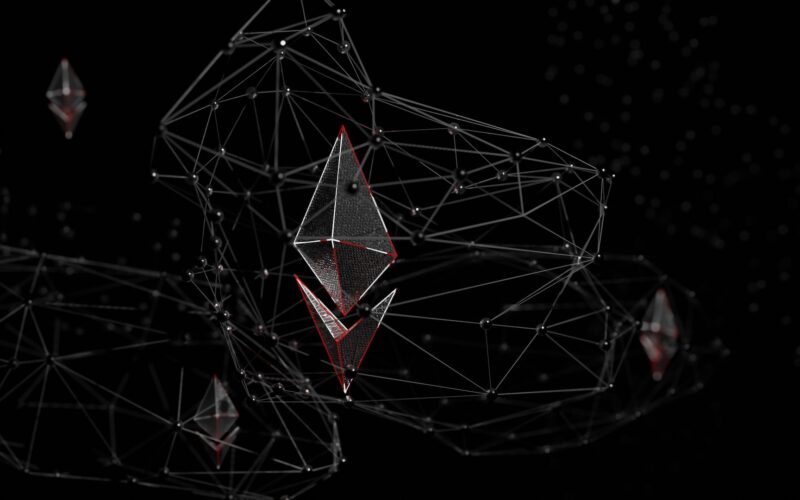Introduction
In the ever-evolving world of blockchain technology, Ethereum has emerged as a groundbreaking platform that goes beyond the capabilities of traditional cryptocurrencies. With its innovative approach, Ethereum has unlocked the potential of smart contracts and decentralized applications (DApps), revolutionizing various industries. This article will delve into the intricacies of Ethereum, exploring how it harnesses the power of smart contracts and empowers developers to build decentralized applications that are reshaping the digital landscape. For those intrigued by Bitcoin, analyzing its pegging relationship with the European currency offers valuable insights into the potential impact on both markets, shedding light on the interplay between these two financial ecosystems.
What is Ethereum?
Ethereum, established by Vitalik Buterin in 2015, is a blockchain platform that operates on an open-source protocol. It offers a range of functionalities, with its primary focus being the facilitation of smart contract creation and execution. While Bitcoin mainly functions as a digital currency, Ethereum distinguishes itself by providing a robust foundation for developers to construct and launch decentralized applications on its blockchain. This unique feature has propelled Ethereum to the forefront of the blockchain ecosystem, establishing it as a prominent and influential entity.
The Power of Smart Contracts
Smart contracts are fundamental components of the Ethereum blockchain network. They are autonomous agreements that adhere to predetermined rules and conditions, capable of executing themselves without the need for intermediaries. By harnessing the power of Ethereum’s blockchain technology, smart contracts facilitate secure and transparent transactions involving digital assets. This innovation renders traditional systems obsolete and eliminates the necessity for third-party intervention in the process.
Unleashing Decentralized Applications (DApps)
- What are Decentralized Applications?
Decentralized Applications, or DApps, are software applications built on blockchain platforms like Ethereum. Unlike traditional applications that rely on centralized servers, DApps utilize the decentralized nature of blockchain to ensure transparency, security, and immutability. Operating on a network of computers rather than a single server, DApps empower users with increased control over their data while eliminating the risks associated with centralized systems. By leveraging blockchain technology, DApps offer enhanced security, transparency, and immutability, revolutionizing the way applications are developed and deployed across various industries.
- Diverse Applications of Ethereum
Ethereum’s remarkable versatility has sparked the emergence of countless decentralized applications (DApps) across a wide range of industries. With applications in finance, healthcare, gaming, and supply chain management, Ethereum has become the go-to platform for developers seeking to revolutionize traditional models. Leveraging Ethereum’s robust infrastructure, these DApps have the power to fundamentally reshape legacy systems by introducing efficiency, trust, and cost-effectiveness to diverse sectors.
Ethereum’s Impact on Industries
- Financial Sector Transformation
Ethereum’s impact on the financial sector has been profound. With the introduction of decentralized finance (DeFi) applications, traditional financial intermediaries face the threat of disintermediation. DeFi platforms built on Ethereum allow users to participate in lending, borrowing, and trading without the need for banks or other centralized institutions. This shift towards decentralized finance promotes financial inclusion, transparency, and democratizes access to financial services.
- Empowering Developers and Entrepreneurs
Ethereum has revolutionized application development by offering a decentralized and open-source platform, empowering developers and entrepreneurs to create their own decentralized applications (DApps). This has democratized the industry, leading to numerous opportunities and fueling the rapid growth of the blockchain ecosystem. Ethereum’s decentralized framework, along with its open-source nature, encourages collaboration and innovation, allowing for the creation of diverse DApps with various functionalities. By eliminating intermediaries, Ethereum enhances security, trust, and efficiency in peer-to-peer interactions. Additionally, Ethereum has introduced Initial Coin Offerings (ICOs), providing a new way for projects to raise funds and enabling individuals to participate in the blockchain’s growth. Overall, Ethereum continues to shape the future of technology, driving advancements and unlocking possibilities for developers, entrepreneurs, and users worldwide.
- Enhancing Supply Chain Management
Blockchain technology, led by Ethereum, has the capacity to revolutionize supply chain management by leveraging smart contracts. Through the implementation of Ethereum-based solutions, companies can establish transparency and traceability across the entire supply chain process. This transformative technology enables effective monitoring of product origin, quality control, logistics, and distribution. By eliminating fraudulent activities, streamlining operations, and fostering consumer trust, Ethereum-based solutions have the potential to significantly enhance the efficiency and integrity of supply chain management.
Conclusion
In conclusion, Ethereum has emerged as a groundbreaking platform that unleashes the power of smart contracts and decentralized applications. Its impact reaches far beyond the realm of cryptocurrencies, empowering developers and entrepreneurs to create innovative solutions across various industries. With its potential to revolutionize finance, transform supply chain management, and drive the adoption of decentralized applications, Ethereum continues to shape the future of technology. Embrace Ethereum’s potential and explore the world of smart contracts and decentralized applications to unlock new possibilities in the digital landscape.




